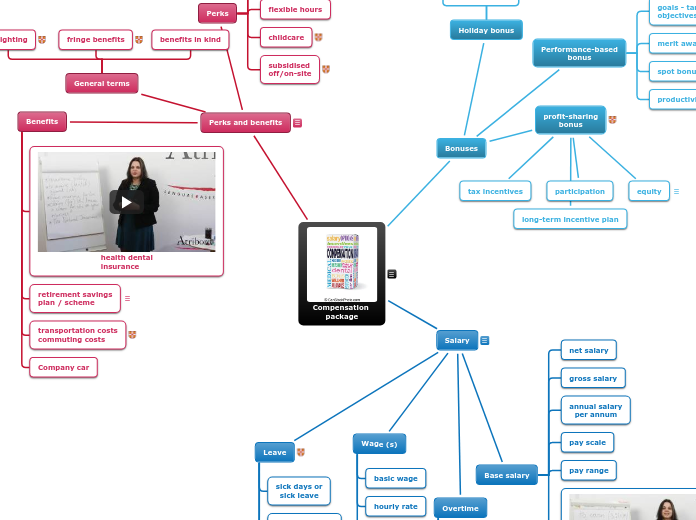
Compensation package
Salary
Base salary
net salary
gross salary
annual salary
per annum
pay scale
pay range
to earn/earnings
Wage (s)
basic wage
hourly rate
flat rate
Overtime
to be on overtime
to put in x hours
of overtime
double time pay
Leave
sick days or
sick leave
personal days
family matters
vacation days
maternity /
pat. leave
Perks and benefits
Benefits
health dental
insurance
retirement savings
plan / scheme
transportation costs
commuting costs
Company car
Perks
cafeteria system
telecommuting
flexible hours
childcare
subsidised
off/on-site
General terms
weighting
fringe benefits
benefits in kind
Bonuses
profit-sharing
bonus
tax incentives
participation
equity
long-term incentive plan
Performance-based
bonus
goals - targets -
objectives
merit award
spot bonus
productivity
Holiday bonus
Christmas
bonus
cash bonus
non-cash bonus
